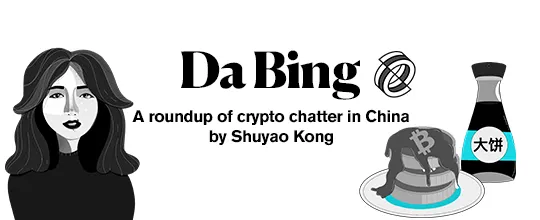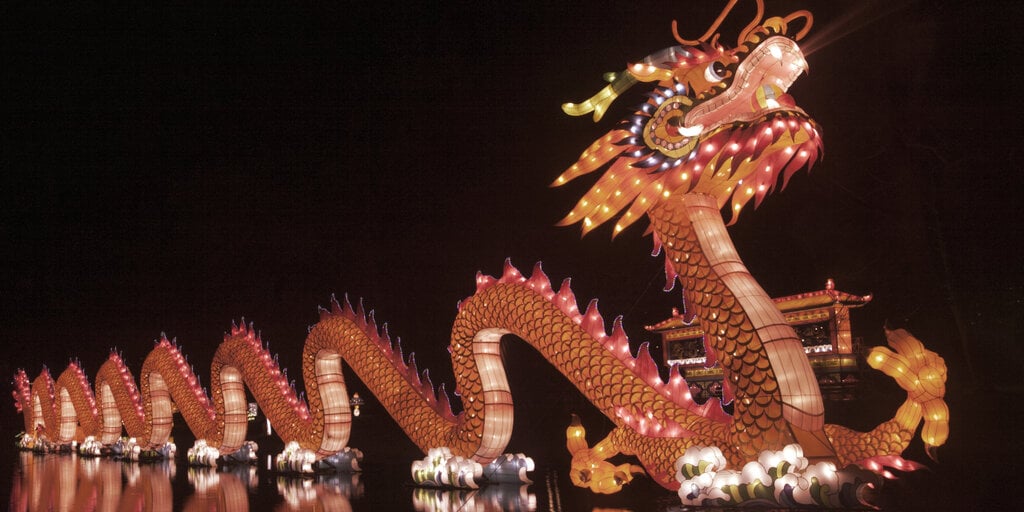[ad_1]

Writing a prediction piece is a humbling thought experiment. My three wild bets for the year-of-the-Tiger turned out to be wildly inaccurate. Specifically:
(1) I predicted that China would produce the next hit crypto game. Instead, the entire gaming sector launched many tokens, instead of games. I’m still hopeful though, mainly due to the abundant talent from China. They just know how to get people addicted to simulation boxes.
(2) I predicted that Chinese tech giants would go big on NFTs. The mixed reality is that while Chinese tech giants fled the NFT market once the bear hit, there was a steady stream of Chinese celebrities launching NFTs as pet projects. Some provincial governments also opened their arms to embrace NFTs in order to invigorate the creative industry.
(3) I predicted that a thousand DAOs would emerge from the Chinese crypto community. Instead, we got ourselves a thousand airdrop-farming studios developing deep expertise in anti-Sybil practices and accruing Points. The few DAOs remaining are still active but gone are the days when making a DAO manifesto was considered sexy.
Predictions are hard because we tend to use the most recent and somehow optimistic data points to predict a roller-coaster market. But this doesn’t mean that predicting them is less fun.
So here we go again! Here are my wild prognostications for China, crypto, and the Year of the Dragon!
1. Chinese communities will invent and export new degen narratives
The most overlooked hidden force in crypto has always been the Chinese aunties. They have single-handedly created terminologies, narratives, and even price movements on topics unknown to the western crypto Illuminati.
Did you know that the term “KOL”—for Key Opinion Leader—originated in China? It’s an indisputable Chinglish phrase that exists solely because Chinese cannot pronounce the word “influencer.”
Last year, Bitcoin Ordinals and Bitcoin layer-2’s caught most industry participants off guard. Not only did token prices go up, a new class of builders and funds started pouring resources into “make Bitcoin great again.”
“BRC20 and Ordi fascinated Chinese communities to begin with,” the pseudonymous 0XWizard, a leading KOL in the Bitcoin ecosystem, told me. “Chinese are more open to new token and asset standards, as long as there’s a wealth effect. Forget about technology—Chinese will ape anything that makes them money.”
Closely following Bitcoin’s Renaissance was the birth of ERC-404, a semi-fungible yet completely unofficial token standard. Both share the same origin—Chinese devs. While many alignment folks criticized the lack of endorsement of such a standard, I’m of the view that this baby step is just a reflection of the Chinese community’s urge to degen, at the cost of making up a new standard!
But more importantly, this new class of Chinese builders has learned a few things about crafting narratives—be it Bitcoin or ponzi token standards. In 2024, I predict we will see more original degen plays from the Chinese community. Bonus prediction: Some of the mechanisms will be adopted and accepted by the wider crypto community.
2. Everything is going on-chain—even in China
Yes, we are going on-chain.
Starting from centralized exchanges, all top three exchanges are building out their Web3 kingdoms: a wallet, a native protocol, and many native dapps.
For example, OKX launched its multi-chain wallet in 2023. It was the first non-custodial wallet to support Bitcoin Ordinals. The exchange also partnered with Polygon to launch a new layer-2 chain called X1. Willingly, or unwillingly, Chinese business founders are building infrastructure and funneling existing users to the on-chain world.
Quest platforms are another favorite of Chinese builders. Galxe single-handedly funnels more on-chain transactions than all other websites combined. Many of these quests are for airdrop farmers, but they also serve the end goal of rewarding users to actually use the blockchain.
Lastly, and perhaps most importantly, Ethereum development has also benefited from Chinese researchers, especially in the zero-knowledge and account abstraction space. Teams like Scroll and Taiko are scaling Ethereum side by side with the Ethereum Foundation. Soul Wallet and Blocto are pushing on the smart-contract wallet front.
3. The flight of crypto people from the Middle Kingdom
A few things lingered in my head from last year. One day I received a Telegram message from a Chinese crypto founder/friend. I covered his story back in 2020. He asked if I can take that story down because he doesn’t want the Chinese government to identify him. This was urgent because the government was in the middle of cracking down on multiple crypto founders and investors.
This founder “wished to disappear from the internet.”
We took the piece down. But the ask saddened me greatly because he was in the first generation of credible crypto builders who had delivered a solid DeFi product. Now he has to erase himself in order to continue working in our industry. Maybe “going anon” is not a big sacrifice for small business builders, but for those who want their products to touch a billion people’s lives, “disappearing” is simply not an option.
Alternative lifestyles exist, too. Singapore attracted an initial wave of rich crypto OGs, followed by a small number of builders (until 3AC happened). Hong Kong took over the steam in 2022 as the local government openly embrace Web3.
Thailand became the Garden of Eden for young, hipster, degenerative crypto idealists. In Dan Wang’s 2023 newsletter, he painted a picture of the young crypto runners engaging in deep philosophical topics about nation state, geopolitics, well-being, and psychedelics, over delicious $2 dollar meals.
In Dubai, where I live, crypto has been in an “up only” trend. Most Chinese exchanges have moved their global headquarters to the UAE. Crypto-native builders increasingly treat Dubai as a potential nest for residence (yes to 0% tax!).
Compared to the COVID times when living abroad was a forced choice, more crypto natives now choose to live abroad. A few months here and there becomes possible as fellow crypto native friends are equally mobile.
I predict 2024 is the year when these dispersed nomadic communities grow bigger, more inclusive, and more influential. I hope there are new permutations of these communities centered around ideology, faith, hobbies, culture, and food. Perhaps the idea of DAO will come back. Perhaps the next hit crypto game will be born from such a group. Perhaps it’s just the friendship people form along the journey.
A ripple effect of having a decentralized Chinese community is that it forces us to be diverse. By physically living in each other’s countries, we further eliminate the boundaries between East and West.
The more I think through these bets, the more I realize that these predictions are deeply rooted in my optimism about the community. As the crypto industry moves into an on-chain bull market, the Chinese community will also accelerate at such pace. After all, the “dragon” in Chinese is the same character (龙) as “long.” Long the market—but also long the Chinese community!
Stay on top of crypto news, get daily updates in your inbox.
[ad_2]
Source link


